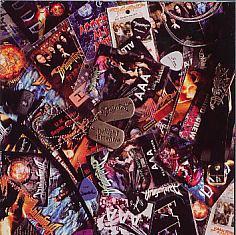I wouldn’t have predicted it, but BSAWW is actually Satriani’s most adventurous album since the 2000 trance/techno experiment Engines Of Creation, and probably features the most disparate collection of styles heard on a single album since 1993’s Time Machine.
Between his relatively uninspired recent albums Super Colossal and Professor Satchifunkilus And The Musterion Of Rock, his unsportsmanlike attempt to sue Coldplay, and the utterly dreadful ‘Chickenfoot’ project with Sammy Hagar, guitar god Joe Satriani may well have a bit of credibility to earn back in the eyes of his fans. If so, Black Swans And Wormhole Wizards is the album that will get him at least halfway there.
I wouldn’t have predicted it, but BSAWW is actually Satriani’s most adventurous album since the 2000 trance/techno experiment Engines Of Creation, and probably features the most disparate collection of styles heard on a single album since 1993’s Time Machine.
The appeal of Satriani’s songs lie in their ability to satisfy the primal side of the brain with gutsy riffs, while offering a certain magic in their melody that fuels the imagination. Dream Song plays on a consistent harmonic drone and spacious chords to evoke the feeling of flight as only Satriani can. The Golden Room, with its exotic scales and Marrakesh-marketplace percussion, may well be the soundtrack for an Indiana Jones-style adventure. (Maybe one in which ‘Professor Satchifunkilus’ searches for the ‘Musterion Of Rock’, eh?)
The few moments where this album disappoints are usually accompanied by a feeling of deja-vu. Tracks such as Premonition and Wormhole Wizards, though never lacking for stellar fretwork, are just a bit too familiar-sounding in their structure.
That said, BSAWW actually features more earnest attempts by Satriani to escape his characteristic formula (simple verse/chorus/flashy verse/chorus/bridge/jam on chorus) than we have heard in some time. The brief, stark chord sequence of Solitude marks the welcome return of the moody vignette (remember Midnight or The Forgotten?) to his repertoire, while the sprawling Wind In The Trees improvises exhaustively over a simple theme, like the musical equivalent of a meditative mantra. Two Sides To Every Story brings out a deftly funky minimalism in Satriani’s playing.
And of course, when it comes to something like Light Years Away – epic sci-fi fantasy expressed through supercharged riffage in the tradition of classic Satch – you’d be about as likely to find a Joe fan complaining about its ‘familiarity’ as an AC/DC fan about Black Ice. If it isn’t broke…
Besides, these are the kinds of criticisms that wouldn’t even occur to anyone but a long-term Satriani devotee. I could imagine my 18-year-old self picking up this album, oblivious to what has gone before, and just saying: ‘This… shit… ROCKS!’
And so it does. While to some, it’s just more guitar nerd music, to the Satch faithful BSAWW is the sound of redemption.

